
761. Trust Government Statistics, Not Government
David Hebert argues that while government economic planning is often flawed, government statistics can be trusted as they involve technical problem-solving rather than economic trade-offs.
your daily dose of economic commentary

David Hebert argues that while government economic planning is often flawed, government statistics can be trusted as they involve technical problem-solving rather than economic trade-offs.
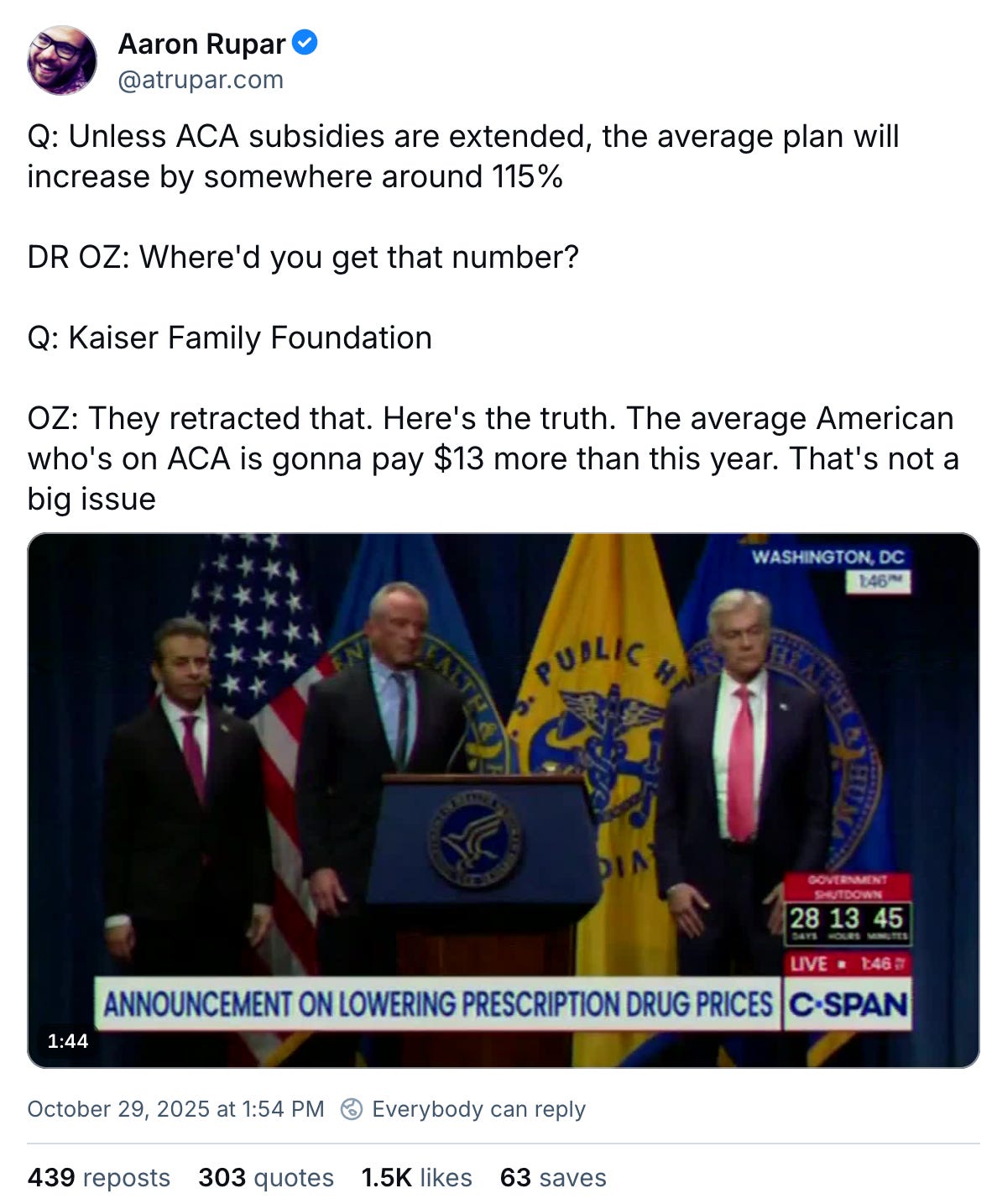
An argument that imminent cuts to SNAP and health insurance will severely harm millions, revealing Republican intentions and miscalculations in their policy implementation.

The post discusses the Freddie Mac House Price Index showing a year-over-year increase of 1.0% in September, along with notable month-over-month declines and regional performance variations.

The Associated Press reports that President Donald Trump urges the Senate to eliminate the filibuster to allow Republicans to reopen the government without Democratic support.
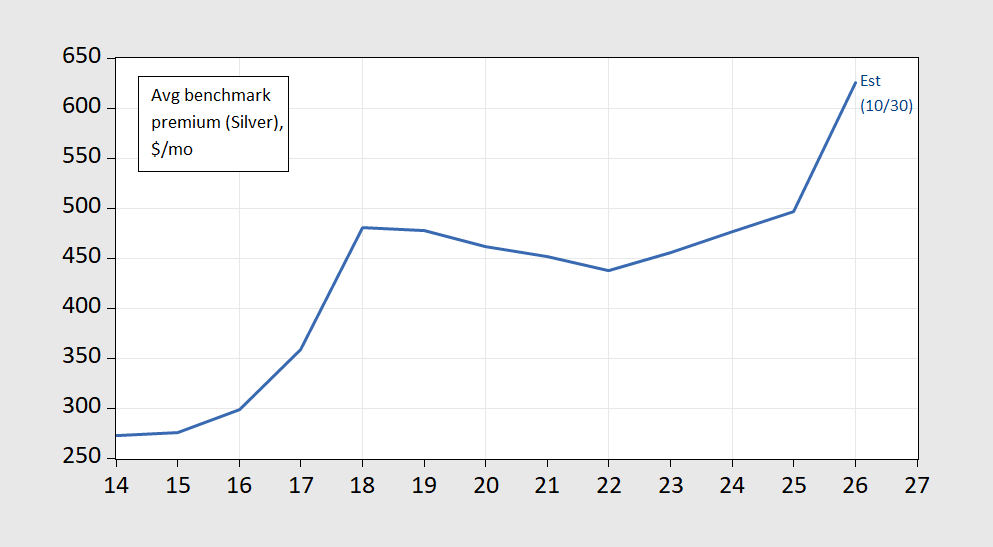
An argument that the potential extension of expanded premium tax credits could significantly affect ACA coverage and costs, highlighting disparities across states and demographics.
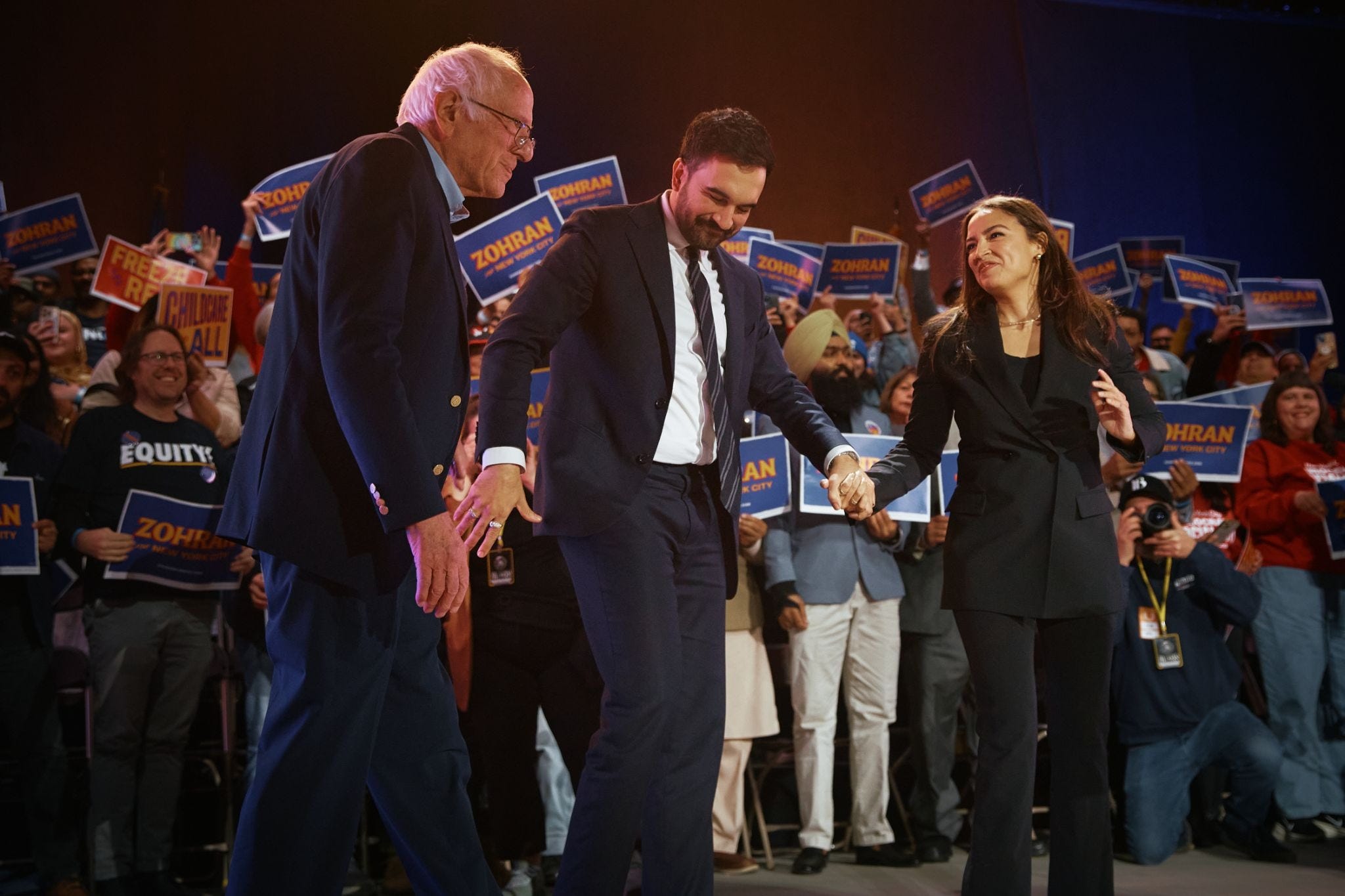
Nate Silver discusses the shifting dynamics of the NYC mayoral race, highlighting recent polling trends and candidate chances as Election Day approaches.
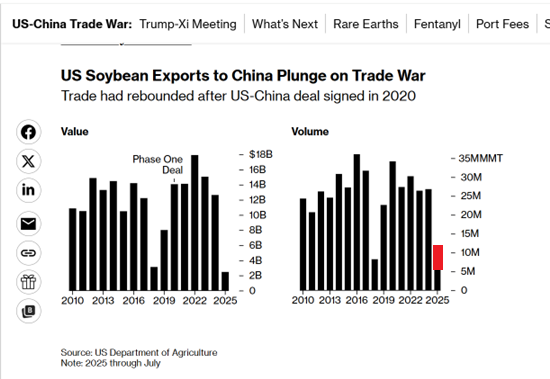
Menzie Chinn discusses China's soybean purchase commitments and their implications for U.S. farm income and compliance based on past trade agreements.

An argument that CPB terminated a significant contract with NPR due to pressure from the White House, raising concerns about political influence on public broadcasting.

The post discusses a decline in hotel occupancy rates due to reduced international tourism and compares current data with previous years, highlighting significant market variations.

Visitor traffic in Las Vegas decreased significantly in September, influenced by lower midweek volumes and the absence of major conventions compared to previous years.

An argument that superhero narratives overlook economic principles, particularly regarding market failures and the necessity of compensation for maximizing value in crime-fighting scenarios.
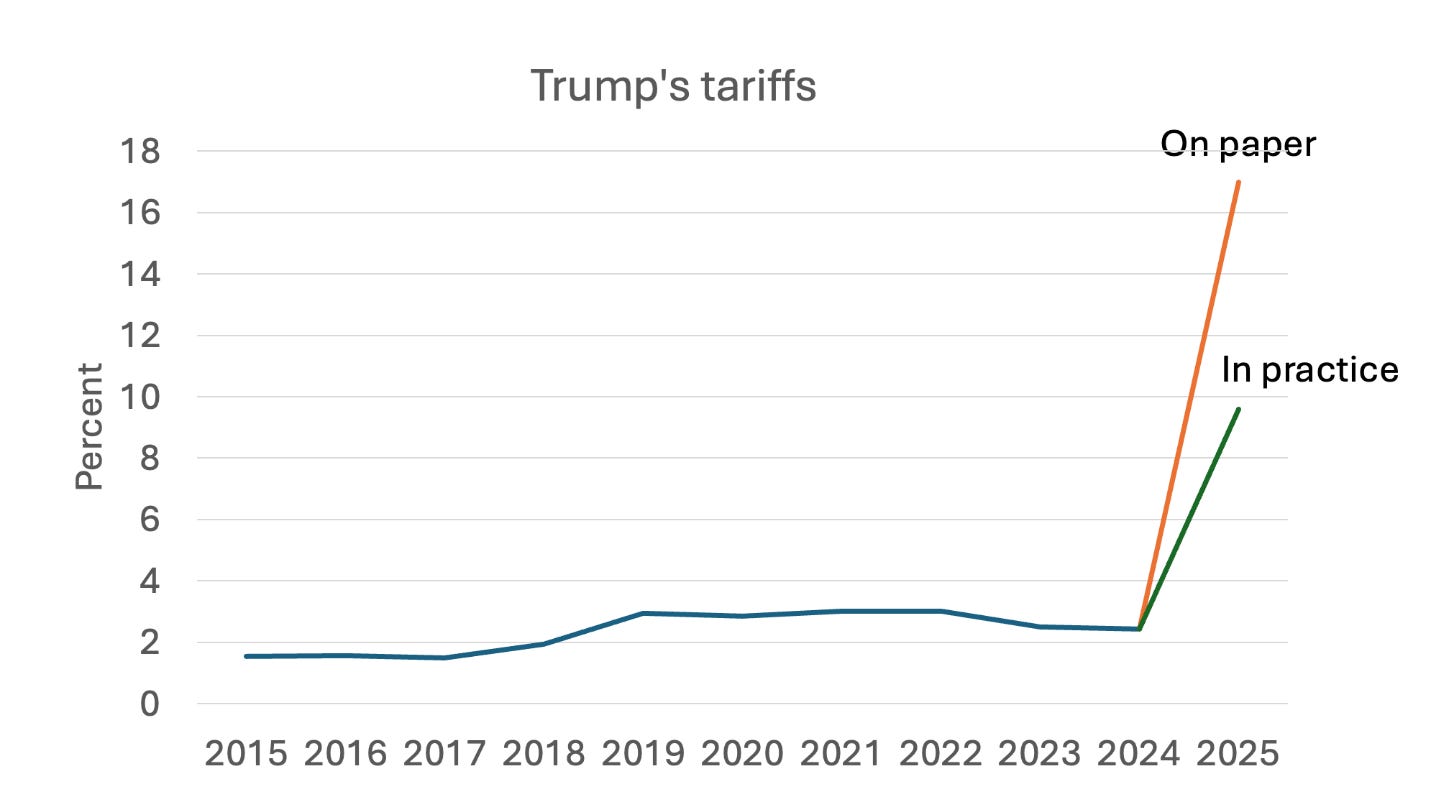
Paul Krugman discusses the economic damage caused by Trump's tariff policies, highlighting their impact on prices, uncertainty, and the credibility of the U.S. economy.

Bill McBride discusses the current state of inflation-adjusted house prices and the price-to-rent index, noting their decline from 2022 peaks.
Robert Vienneau critiques mainstream economics, particularly the Cambridge Capital Controversy, arguing against the validity of supply and demand in explaining capital markets.

Deepa Shivaram reports on President Trump's positive assessment of his meeting with Xi Jinping and the decision to lower tariffs.

Rising car insurance premiums outpace inflation, causing financial strain for many Americans, while some drivers seek alternatives to manage costs.

Camila Domonoske discusses the rising costs of cars in the U.S. and the financial burden it places on consumers.
Tyler Cowen discusses Jonny Steinberg's insights on South African history, policing, and the complex relationship between Nelson and Winnie Mandela.
An argument that government industrial policies can benefit targeted industries but may impose costs on the broader economy, illustrated through comparisons of Korea and Brazil's approaches.
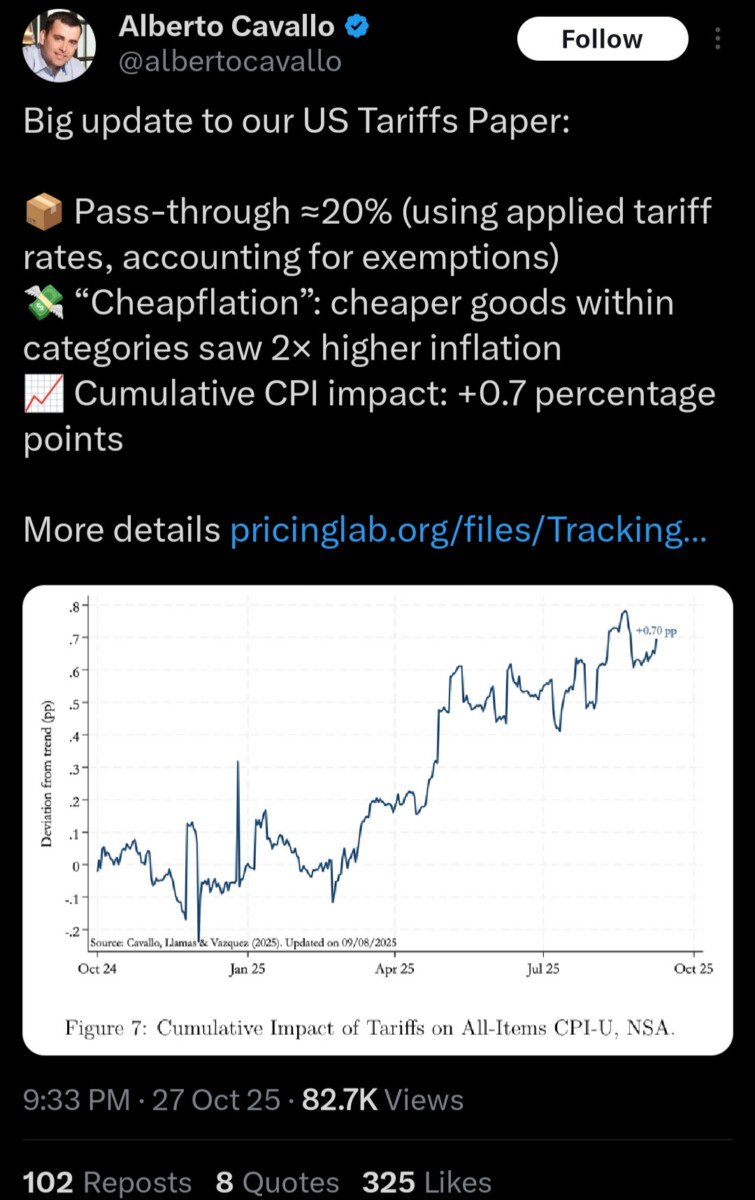
An argument that consumer price index estimates are influenced by tariffs, highlighting data analysis through October 12.